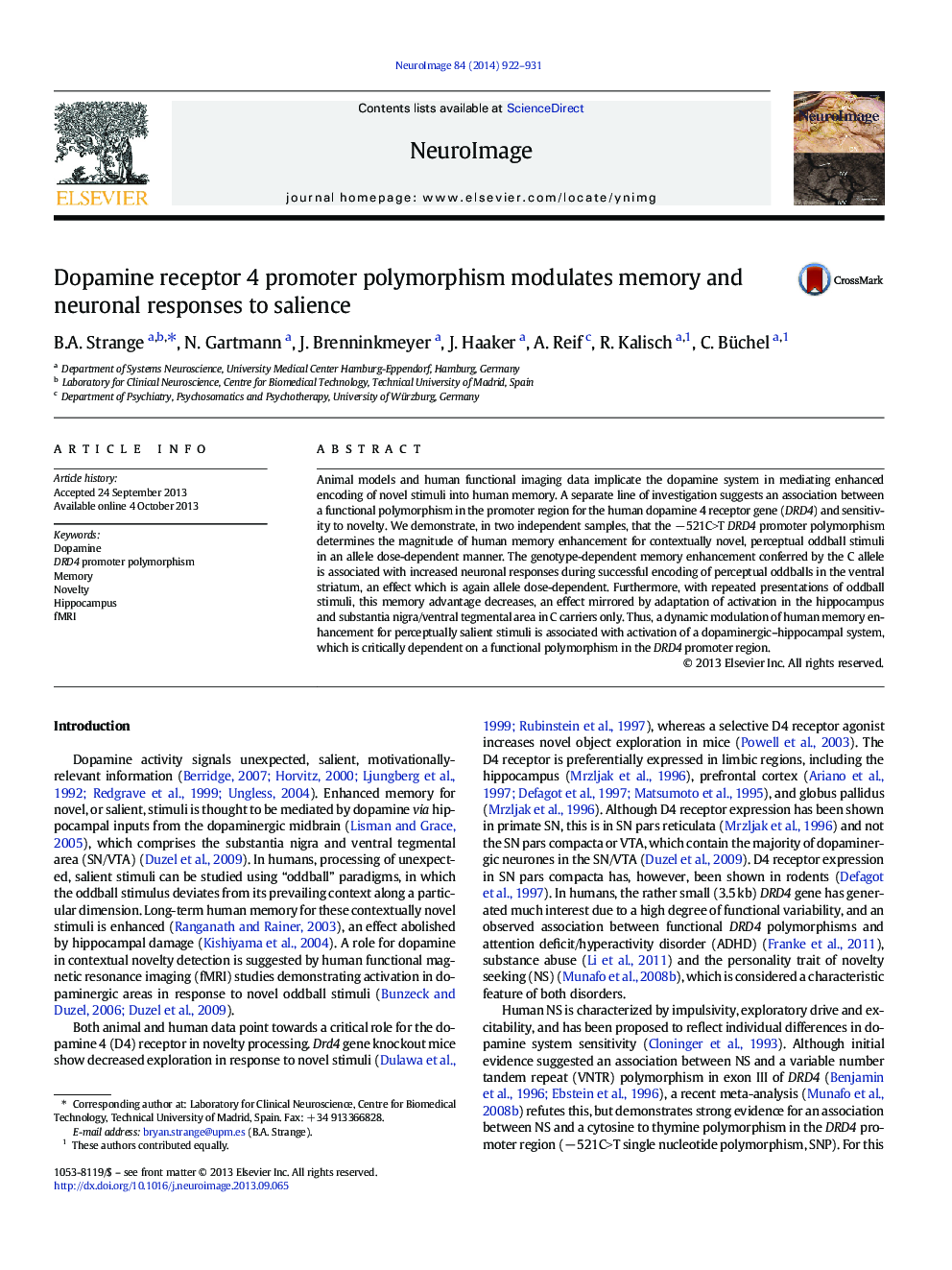| Article ID | Journal | Published Year | Pages | File Type |
|---|---|---|---|---|
| 6028622 | NeuroImage | 2014 | 10 Pages |
Abstract
Animal models and human functional imaging data implicate the dopamine system in mediating enhanced encoding of novel stimuli into human memory. A separate line of investigation suggests an association between a functional polymorphism in the promoter region for the human dopamine 4 receptor gene (DRD4) and sensitivity to novelty. We demonstrate, in two independent samples, that the â 521C>T DRD4 promoter polymorphism determines the magnitude of human memory enhancement for contextually novel, perceptual oddball stimuli in an allele dose-dependent manner. The genotype-dependent memory enhancement conferred by the C allele is associated with increased neuronal responses during successful encoding of perceptual oddballs in the ventral striatum, an effect which is again allele dose-dependent. Furthermore, with repeated presentations of oddball stimuli, this memory advantage decreases, an effect mirrored by adaptation of activation in the hippocampus and substantia nigra/ventral tegmental area in C carriers only. Thus, a dynamic modulation of human memory enhancement for perceptually salient stimuli is associated with activation of a dopaminergic-hippocampal system, which is critically dependent on a functional polymorphism in the DRD4 promoter region.
Keywords
Related Topics
Life Sciences
Neuroscience
Cognitive Neuroscience
Authors
B.A. Strange, N. Gartmann, J. Brenninkmeyer, J. Haaker, A. Reif, R. Kalisch, C. Büchel,
